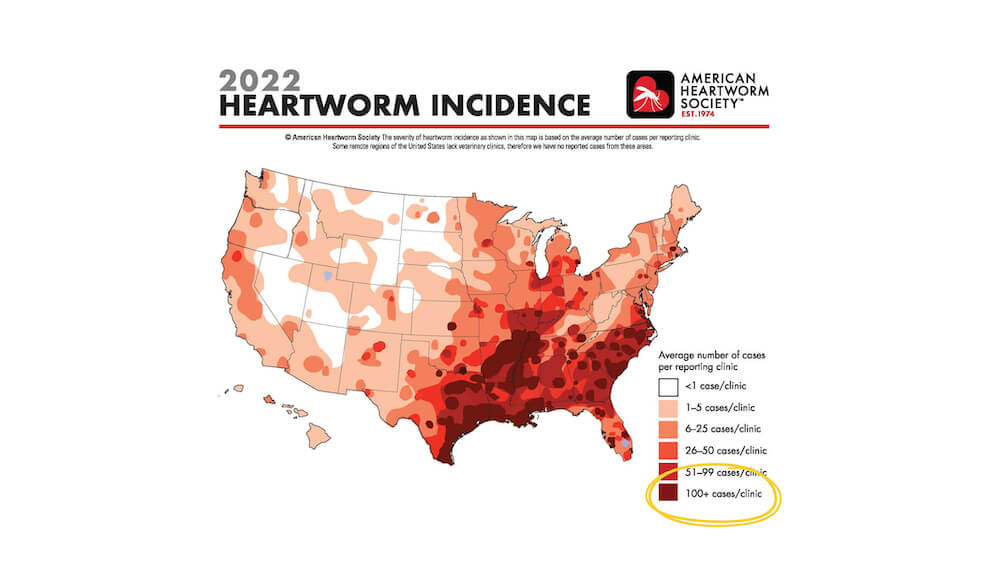Puppy care is essential for your new pet's health and development. We're glad you're taking the time to learn—and even happier you found us!
At Whittington Veterinary Clinic, we want to help your puppy get the best start possible. We've compiled a list of common questions and answers to guide you through early care and set the foundation for lifelong health.
How will proper puppy care impact the life of my dog?
Proper puppy care sets the stage for a healthy, well-behaved dog. Vaccines help prevent serious diseases, while early training teaches good habits from the start. Just as important are proper nutrition and regular veterinary visits to support your pup's overall health
Why is puppy care so important from day one?
From the moment a puppy enters your home, everything is new—people, rules, and routines. They need clear guidance right away to learn where they can go, how to behave, and what's expected. Medically, early care sets a healthy foundation by addressing vaccines, parasites, and preventatives right from the start. Puppies also thrive on structure, so starting a consistent routine with nutrition, training, exercise, and oral care helps them grow into happy, healthy dogs.
When should I make my puppies first visit?
Timing depends on your puppy's age and vaccine history, so check with the breeder or shelter for records. Most puppies need their first exam and vaccines between 6–8 weeks old. Many breeders offer a 72-hour window to have the puppy checked by a vet, in case any health issues are found. If you're unsure about your puppy's age or needs, we're happy to help you figure out the best time for their first visit. Please call us at (337) 893-8522 to schedule your puppy’s first visit.
What are some common health problems in puppies?
It's important to recognize signs of illness early and reach out to us as soon as possible. Health concerns we frequently see include:
- Intestinal worms
- Parvovirus
- Skin infections
- Eye or respiratory infections
- Soft spots on the head (fontanelles)
Less common but serious conditions include heart murmurs and cleft palates. If your puppy isn't vaccinated yet, starting right away is key to protecting them from serious and potentially fatal diseases.
What are signs your puppy might be sick?
Symptoms can vary, but some common ones to watch for include:
- Diarrhea or vomiting (sometimes with blood)
- Not eating well
- Coughing or sneezing
- Low energy or acting very tired when awake
- A swollen belly
If your puppy shows any of these signs, it's a good idea to call us at (337) 893-8522 to schedule your puppy to be seen.
What are signs of a healthy puppy?
A healthy puppy is active, playful, eats and drinks well, goes potty regularly, and is happy to see you. They should be alert, responsive, and take normal naps. If they seem withdrawn or low-energy, it could be a sign something's wrong.
When should I start training my puppy?
Start training as early as day one with simple commands like "sit” before meals. Reward calm behavior and discourage things like play biting right away. Puppies learn best with structure and clear expectations. Early training helps prevent confusion later.
What to expect at my puppy's first visit?
Our doctor will do a full head-to-tail exam to make sure your puppy is healthy and developing normally.
Here's what they'll look at:
- Eyes: Clear, bright eyes without discharge or cloudiness
- Teeth & Mouth: Baby teeth coming in properly, no sores or jaw issues
- Heart & Lungs: Listening for murmurs, arrhythmias, or breathing problems
- Bones & Joints: Checking for proper movement, growth, or early signs of joint issues
- Skin & Coat: Looking for fleas, mites, dry skin, or signs of infections
- Belly: Feeling for swelling, pain, or hernias
- Stool Sample: Checking for intestinal parasites like roundworms, hookworms, tapeworms, whipworms, and coccidia
We’ll also ask you about your puppy's eating habits, potty training, activity level, sleep schedule, behavior, and any concerns you've noticed. We will go over vaccination needs, parasite prevention (like heartworm and flea/tick), nutrition, and offer guidance on training, teething, and socialization.
Now that we've covered some common puppy questions, here are a few helpful tips—plus some key do's and don'ts— for giving your new puppy the best start possible.
Potty & Crate Training Basics for New Puppy Owners
Start early with a consistent routine. Take your puppy outside frequently—after meals, naps, and playtime—and praise them immediately when they go potty in the right spot.
Crate training helps with housebreaking and gives your puppy a safe space. The crate should be cozy, not too big, and used for short, positive periods. Never use it as punishment. Puppies won't usually go potty where they sleep, so it teaches them to "hold it” until they're let out.
Consistency, patience, and positive reinforcement are key to success!
Keeping Your Puppy Safe: Places to Avoid Until Fully Vaccinated
To protect your puppy from serious illnesses, avoid high-traffc dog areas until their full vaccination series is complete.
This includes:
- Pet stores
- Dog parks
- Grooming salons
- Boarding facilities
- Daycares
- Any place where unvaccinated or unknown dogs may be present
Until your puppy is fully vaccinated, stick to safe, controlled environments and only socialize with healthy, vaccinated dogs.
Heartworm Prevention for Puppies

This 2022 map from the American Heartworm Society shows heartworm incidence across the U.S. Louisiana remains one of the highest-risk states, with many clinics reporting over 100 cases—highlighting the urgent need for year-round heartworm prevention.
Heartworms are dangerous parasites spread by mosquitoes and can cause serious, even life-threatening, heart and lung disease. Puppies are especially at risk because their immune systems are still developing.
In Louisiana, mosquito populations are high year-round due to the warm, humid climate—making heartworm exposure a constant threat.
That's why it's crucial to start heartworm prevention as early as 6 to 8 weeks of age, depending on the product. Our doctors will help you choose the right prevention plan and make sure your puppy stays protected from the start.
We can't wait to meet your new puppy and welcome both of you into our veterinary family! Give us a call at (337) 893-8522 with any questions or to schedule your puppy's first visit.
Dr. Anne Katherine welcomes a litter of Golden Retrievers at Whittington Veterinary Clinic.


Don't forget to follow us on social media: Facebook, Instagram.
